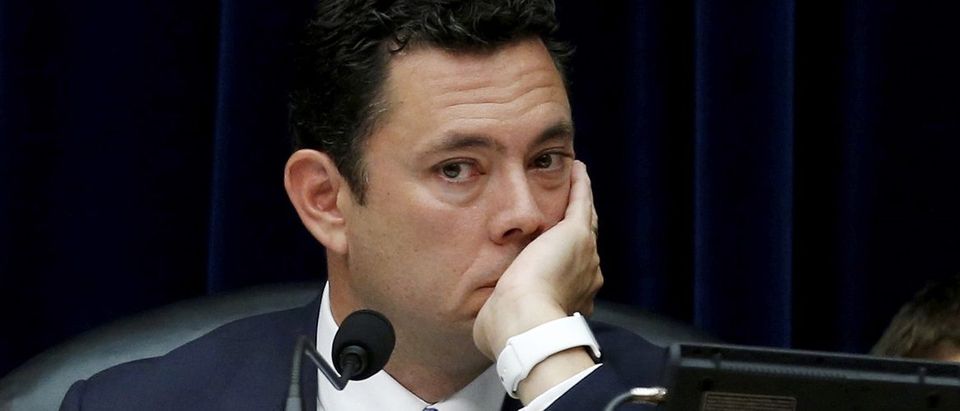Republican Utah Rep. Jason Chaffetz proposed the federal government use facial recognition technology to track illegal immigrants.
“The world of technology offers us a lot of opportunities,” Chaffetz said during his opening remarks for the hearing on police policies for facial recognition. “But just because we can doesn’t mean we necessarily should … like many technologies, used in the wrong hands or without appropriate parameters, it is ripe for abuse.”
Facial recognition technology is a computer application capable of identifying a person from a digital image or video frame by automatically analyzing the measurements of their face.
During the hearing, held by the House Oversight and Government Reform Committee, which he chairs, Chaffetz generally spoke of his concerns of the technology, specifically the misuse by law enforcement and intelligence agencies.
Chaffetz also suggested the trove of personal data the government has (partly due to this technology) should be reduced substantially so it only includes criminals or illegal immigrants.
“Statistical data will show us the bigger the database, the more difficult it is for the facial recognition technology to get it right. If the database was smaller to known criminals, wanted criminals, people that are here illegally, maybe those are the types of things that we should be focused on, as opposed to everybody,” Chaffetz said before introducing the panelists.
The Government Accountability Office (GAO) released a report Wednesday on law enforcement’s use of the technology and found that the FBI “had not fully adhered to privacy laws and policies and had not taken sufficient action to help ensure accuracy of its face recognition technology.”
Citing the GAO assessment, Chaffetz said the massive amounts of personal information the government possesses is truly worrisome, especially since agencies appear unconcerned with the privacy aspects of the issue. (RELATED: Law Enforcement Agencies Policing Americans With Facial Scans, And Civil Rights Groups Are Livid)
“To be clear this is a database, or a network of databases, comprised primarily of law abiding Americans. Eighty percent of the photos in the FBI’s facial recognition network are of noncriminal entries,” Chaffetz explained, adding they are sometimes acquired through official driver’s licenses and passports.
FBI Deputy Assistant Director Kimberly Del Greco denied the cited statistic, saying the agency only has criminal mugshot photos. (RELATED: Facial Recognition Technology Helps NY Law Enforcement Catch 100 Identity Thieves)
“That’s not true,” Chaffetz replied with a smile. Jennifer Lynch, senior staff attorney at the Electronic Frontier Foundation, later agreed with Chaffetz, indirectly saying that what Del Greco said is certainly not true.
Chaffetz continued to press Del Greco and compared the use of facial recognition technology to preemptively fingerprinting people or collecting DNA in advance — practices that only occur after an arrest has been made.
“How about when everybody’s born in the United States, we take a little vile of sample of blood. Why don’t we do that, then we have everybody’s DNA,” Chaffetz says sardonically, pointing out what scares him is “the FBI, The Department of Justice proactively trying to collect everyone’s face.”
Chaffetz said it’s troubling that such data can get in the “wrong hands, nefarious hands, someone in the government misusing it.” (RELATED: Beijing Toilets Now Have Face Scanners)
Chaffetz, though, briefly advised the panel that the database should be limited to only those who are actual criminals, like “people that are here illegally.”
Send tips to eric@dailycallernewsfoundation.org.
All content created by the Daily Caller News Foundation, an independent and nonpartisan newswire service, is available without charge to any legitimate news publisher that can provide a large audience. All republished articles must include our logo, our reporter’s byline and their DCNF affiliation. For any questions about our guidelines or partnering with us, please contact licensing@dailycallernewsfoundation.org.


